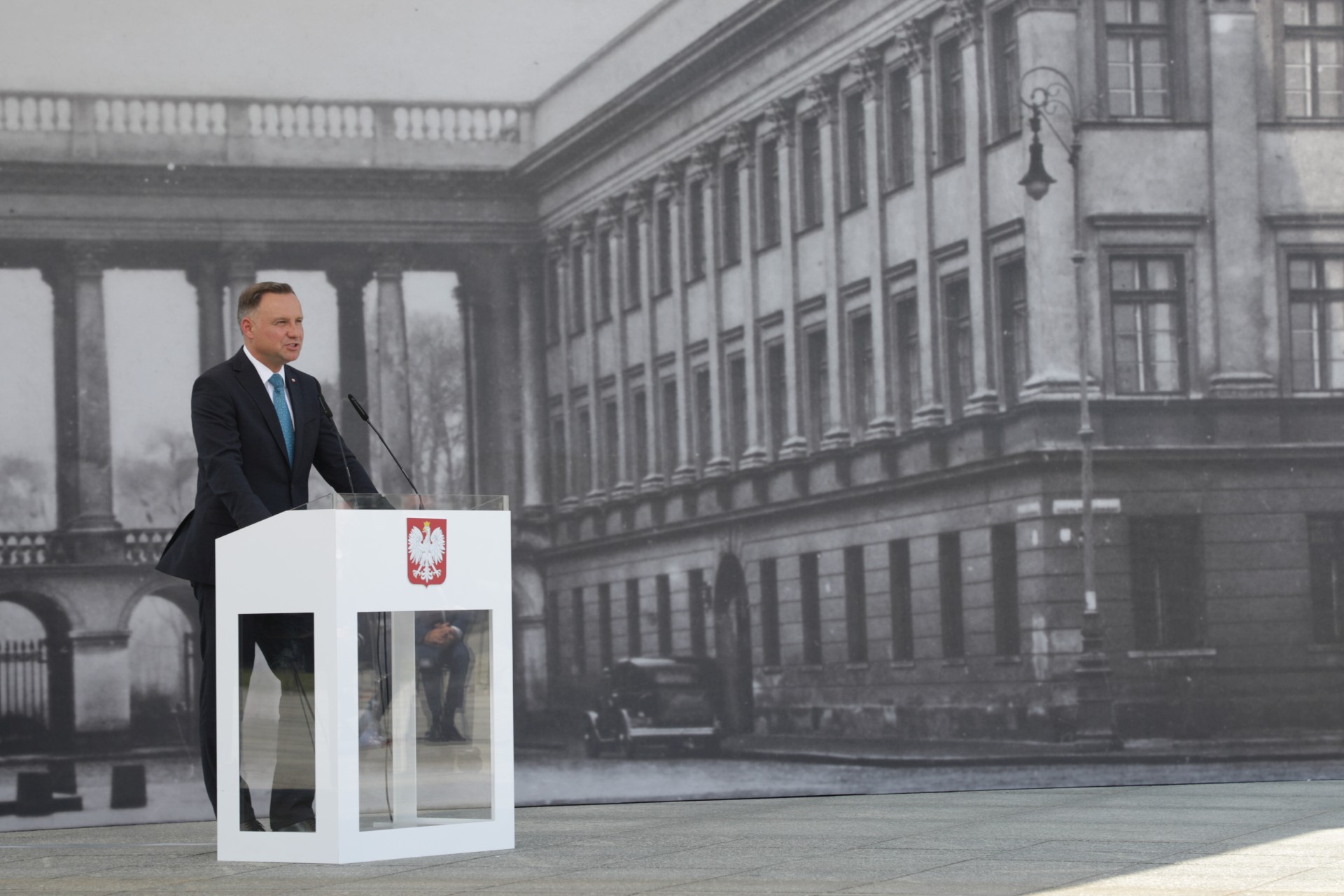What are the consequences of the new "special act" on the reconstruction of the Palac Saski (Saxon Palace)?

The Act on the Reconstruction of the Saxon Palace and other historical buildings in the center of Warsaw provides for many deviations from the generally applied principles of conducting investments. It also restricts property rights and the possibility of submitting claims for the recovery of real estate and the use of limited rights in rem (e.g. easements). The provisions of the Act on Spatial Planning and Development do not apply to the above investment. On the other hand, it provides an opportunity for many contractors and consulting companies on the real estate market for long-term contracts related to new investments.
The act on the preparation and implementation of investments in the reconstruction of the Saxon Palace, Brühl Palace and tenement houses at Królewska Street in Warsaw (Journal of Laws of 2021.1551 of August, 24 2021) (hereinafter: the “Act”) entered into force on September 8, 2021. The Act ends the almost twenty-year stage of activities aimed at finding a legal formula and developing the principles on which the above investment will be implemented.
Landscape change
The Act refers to significant investments in the centre of Warsaw. If their implementation begins and will be continued, the vicinity of Marszałkowska, Królewska, Saxson Garden and Piłsudskiego Streets will change for many years.
The discussion on the legitimacy of spending money from the state budget on these investments and the assessment of the state according to which they should be rebuilt, remain out of the scope of this article. It is worth mentioning, however, that in accordance with the Act, the buildings will be reconstructed according to their external architectural shape as of August 31, 1939. The Act also guarantees the inviolability of the urban layout of the Marshal Józef Piłsudski Square together with the Tomb of the Unknown Soldier, the Papal Cross and other monuments located on it.
Limited Claims
The Act introduces many deviations from the generally accepted principles of investment. Some of them may be of significant importance for entities and persons using the plots on which investments will be developed, or in respect of which they have made or intended to file claims.
Pursuant to the Act, the entity conducting investments, is authorized to terminate lease, use or tenancy contracts with immediate effect. Entities which rights have been so limited are authorized to claim compensation from the State Treasury.
The Act introduces many deviations from the generally accepted principles of investment. Some of them may be of significant importance for entities and persons using the plots on which investments will be developed, or in respect of which they have made or intended to file claims.
The non-regulated legal status of the properties on which these investments are to be made (i.e. the claims of the former owners or their legal successors submitted but not considered) does not prevent the initiation and conduct of proceedings for the issuance of a decision approving the investments. In result, it will be impossible to recover the property intended for investment, and claims towards such properties are limited to damages (if proved).
Pursuant to the Act, the perpetual usufruct of the properties on which investments are to be carried out, also expires. The regulation also limits other rights (including easements and mortgages) to the extent that the real estate is covered by the investment. Entities which rights were limited will be entitled to claim damages.
The rules for conducting the above investments will be specified in the decision on determining the location of the public purpose. It is worth noting that the Act provides for a quick procedure for issuing decisions in favour of the spv, conducting the investment, as well as for decisions limiting the use of neighbouring properties. These decisions are immediately enforceable and appeals against them may be submitted within 7 days of the issuance (and not 14, as in the case of other administrative decisions). There is also a rapid procedure for the examination of cases in connection with the above investments by administrative courts – 30 days from the date of receipt of the response to the complaint.
The investments carried out under the Act are to be allocated to the needs of the Chancellery of the Senate and the Mazovian Voivodeship Office in Warsaw and entities conducting cultural, educational or socially useful activities.

Author: Halina Więckowska-Sulimierska, Legal Counsel